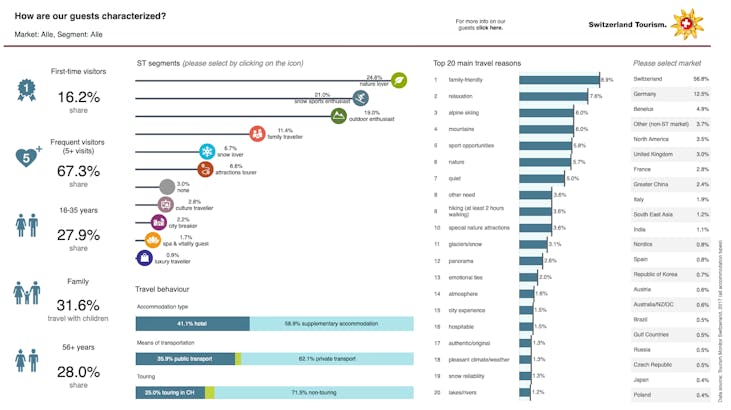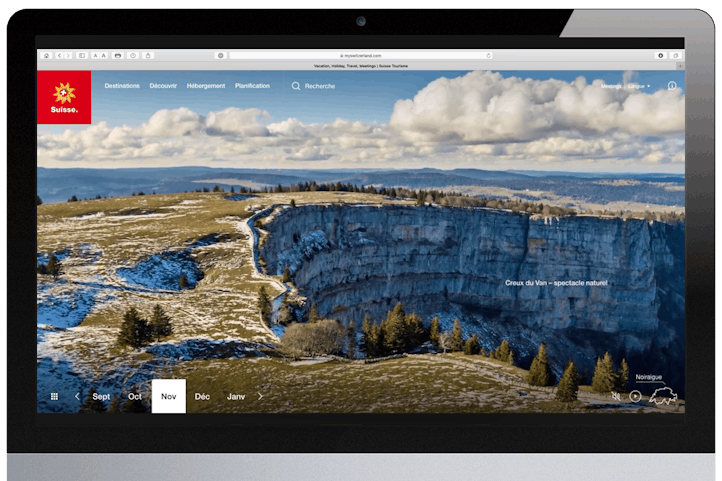Find out more about:
In the digital age, it is essential to use the insights gained from data sets to develop marketing strategies and make business decisions. This applies to all companies in all sectors, irrespective of the size of the enterprise. The human resources and funding available to the company or organisation are of decisive importance for the type and extent of analyses.
Data-driven marketing must be based on the company’s mission, goals and challenges. For example, hotel operators should primarily focus on analysing their own data, such as the profiles of their guests. Destination management organisations (DMO) or national tourism organisations (NTO) such as Switzerland Tourism ST can also use external data to carry out deeper and more complex analyses.
The use of data-driven marketing at ST in 2019
In 2019, ST concentrated on two instruments to enable large amounts of data to be used to optimise tourism marketing:
1. The Management Information System (MIS) brings together currency trends, visitor and market information, figures for hotel overnight stays and the marketing figures gathered by ST on a single platform. The MIS provides the basis for planning with ST’s partners and serves as a decision-making aid for future investments. The platform is still in development and will be available to ST members upon completion.
2. In programmatic advertising, display advertisements, videos and native ads are automatically played back by digital means. Specific AdTech solutions and algorithms enable (third-party) data to be used specifically for targeting and to optimise campaigns. At present, ST does not have an AdTech solution of its own. Various campaign tests will therefore be used to establish whether such a solution offers the desired added value.
Data-driven marketing versus big data (management)
The term “big data” is mostly used in connection with data-driven marketing. Opinions differ about what big data actually means. Switzerland Tourism ST uses the definition produced by Gartner, one of the leading research and consultancy companies: Big data involves complex, multi-layered and often unstructured volumes of data that have to be processed at enormous speed. This calls for a high level of technical expertise, as well as sufficient financial and human resources. For targeted marketing, it often makes more sense to evaluate the existing structured and partially structured data in a targeted manner and, where possible, to link and enhance it with other data. In this case, however, big data is the wrong term. It is more accurate to refer to data-driven marketing. As a purely marketing organisation, ST believes that priority should be given to this data-driven marketing and that its employees should be trained accordingly.











